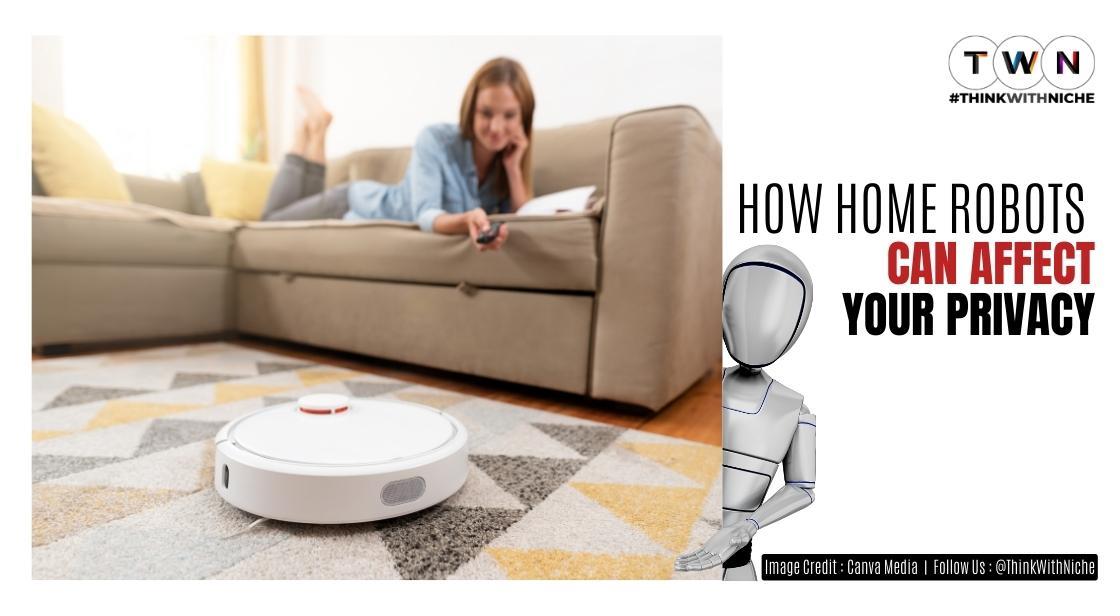How Home Robots Can Affect Your Privacy

Blog Post
As home robots become increasingly popular and accessible, concerns about privacy are also growing. These devices, which are designed to make our lives easier and more convenient, can potentially collect vast amounts of personal data and transmit it to their manufacturers or other third parties, raising questions about who has access to this information and how it might be used.
One of the main ways in which home robots can affect privacy is through their use of sensors and cameras. These devices are often equipped with cameras that can capture images and video footage of people and their surroundings. While this can be useful for tasks such as home security or monitoring children and pets, it also raises the possibility that these images could be intercepted or viewed by unauthorized individuals.
Another concern is that home robots may be able to gather personal data about their users, such as their daily routines, preferences, and habits. This data could potentially be used to build detailed profiles of individuals, which could be exploited for targeted advertising or other purposes.
There are several important concerns about the security of home robots shown in ExpressVPN’s blog post. These devices are often connected to the internet, which makes them vulnerable to hacking and other cyberattacks. If a hacker were to gain access to a home robot, they could potentially access sensitive personal information or even take control of the device itself.
Overall, it is clear that home robots have the potential to greatly impact our privacy. As these devices become more common in households around the world, it is important for users to be aware of the potential risks and to take steps to protect their personal information. This may involve being careful about what information they share with their robots, using strong passwords, and keeping their devices up to date with the latest security patches and software updates.
With the increasing popularity of home robots, concerns about privacy are also on the rise. These devices are designed to make our lives easier and more convenient, but they also have the potential to collect vast amounts of personal data and transmit it to manufacturers or other third parties. As a result, many people are wondering how home robots can affect their privacy and what steps they can take to protect themselves.
One of the main ways in which home robots can affect privacy is through their use of sensors and cameras. Many of these devices are equipped with cameras that can capture images and video footage of people and their surroundings. While this can be useful for tasks such as home security or monitoring children and pets, it also raises the possibility that these images could be intercepted or viewed by unauthorized individuals. Even Amazon’s Astro raises questions about privacy in smart houses, as explored by CNET.
To mitigate these risks, it is important to be aware of what data your home robot is collecting and to take steps to limit its access to sensitive information. For example, you can disable the camera when you are not using it, or cover it with a sticker or tape. You can also set up your home robot to only capture footage when there is motion detected, rather than recording constantly.
Another concern is that home robots may be able to gather personal data about their users, such as their daily routines, preferences, and habits. This data could potentially be used to build detailed profiles of individuals, which could be exploited for targeted advertising or other purposes. In order to prevent this from happening, it is important to carefully review the privacy policies of the manufacturers of these devices and to understand exactly what data they are collecting.
It is also important to take steps to limit the amount of personal data that you share with your home robot. For example, you can avoid using features that require the robot to access your contacts or calendar or use a separate email address for your robot account to avoid linking your personal email with your robot.
Additionally, there are concerns about the security of home robots themselves. These devices are often connected to the internet, which makes them vulnerable to hacking and other cyberattacks. If a hacker were to gain access to a home robot, they could potentially access sensitive personal information or even take control of the device itself.
How Home Robots Can Affect Your Privacy: An Overview
Home robots have become increasingly popular over the years, with more and more people using these devices to make their lives easier and more convenient. However, as the use of home robots becomes more widespread, concerns about privacy are also growing. In this article, we will explore how home robots can affect your privacy and what steps you can take to protect yourself.
The Use of Sensors and Cameras
One of the most common ways in which home robots can affect your privacy is through their use of sensors and cameras. Many of these devices are equipped with cameras that can capture images and video footage of people and their surroundings. While this can be useful for tasks such as home security or monitoring children and pets, it also raises the possibility that these images could be intercepted or viewed by unauthorized individuals.
To mitigate these risks, it is important to be aware of what data your home robot is collecting and to take steps to limit its access to sensitive information. For example, you can disable the camera when you are not using it, or cover it with a sticker or tape. You can also set up your home robot to only capture footage when there is motion detected, rather than recording constantly.
Also Read: Robotic Process Automation (RPA) In Finance: 5 Ways To Use It
Data Collection and Privacy Policies
Another concern with home robots is that they may collect personal data about their users, such as their daily routines, preferences, and habits. This data could potentially be used to build detailed profiles of individuals, which could be exploited for targeted advertising or other purposes. In order to prevent this from happening, it is important to carefully review the privacy policies of the manufacturers of these devices and to understand exactly what data they are collecting.
It is also important to take steps to limit the amount of personal data that you share with your home robot. For example, you can avoid using features that require the robot to access your contacts or calendar, or use a separate email address for your robot account to avoid linking your personal email with your robot.
Cybersecurity Risks
Additionally, there are concerns about the security of home robots themselves. As mentioned in ScienceDirect, robots are not just out of the box machines, since their behavior depends on the ways individuals train and manage them. These devices are often connected to the internet, which makes them vulnerable to hacking and other cyberattacks. If a hacker were to gain access to a home robot, they could potentially access sensitive personal information or even take control of the device itself.
To reduce the risk of hacking, it is important to ensure that your home robot is updated with the latest software and security patches. You should also use strong passwords and avoid using default login credentials. Furthermore, it is important to only connect your home robot to secure and trusted networks.
How to Protect Your Privacy with Home Robots?
There are several steps that you can take to protect your privacy when using home robots:
-
Read the privacy policies of the manufacturers of your home robot and understand exactly what data is being collected.
-
Limit the amount of personal data that you share with your home robot by avoiding features that require access to sensitive information.
-
Cover or disable the camera when you are not using it to prevent unauthorized access to your personal images and videos.
-
Keep your home robot updated with the latest software and security patches, and use strong passwords to prevent hacking.
-
Only connect your home robot to secure and trusted networks.
Conclusion
Home robots have the potential to greatly impact our privacy. While these devices offer many benefits, it is important to be aware of the potential risks and to take steps to protect your personal information. By following the tips outlined in this article, you can enjoy the convenience of home robots while also safeguarding your privacy.
You May Like
EDITOR’S CHOICE












